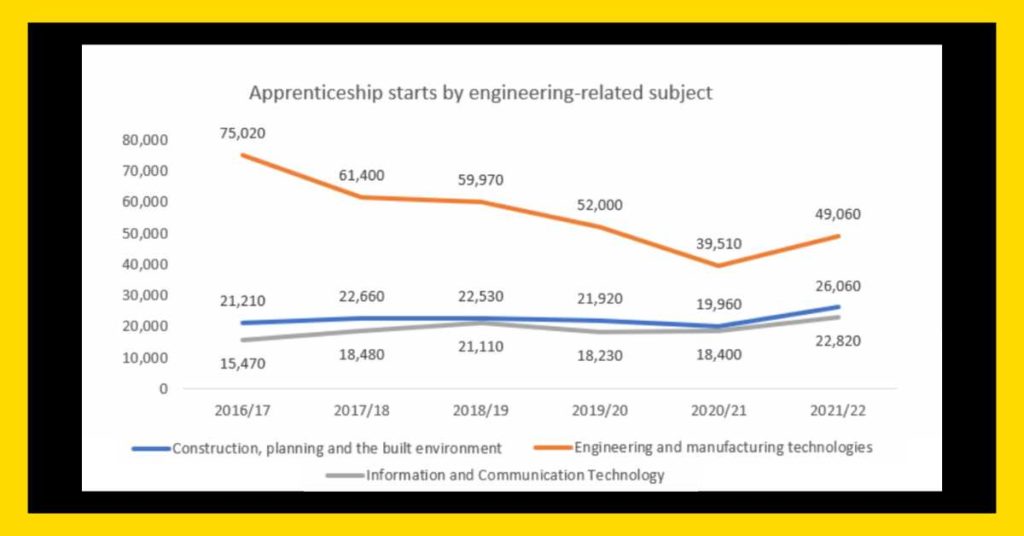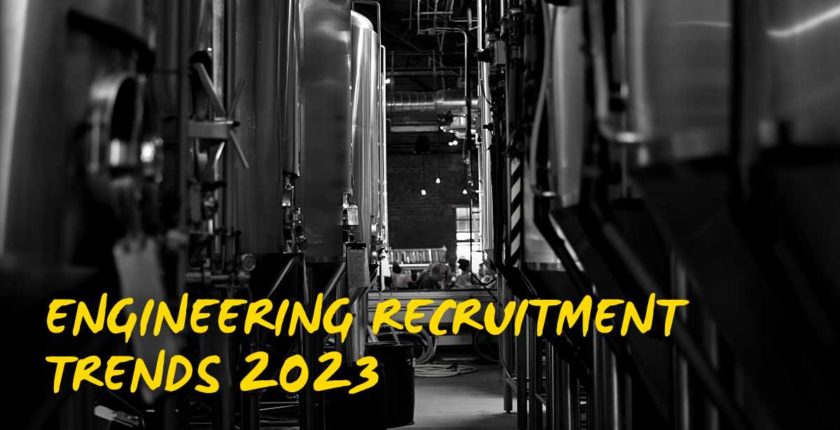Engineering Recruitment Trends 2023
2023 is here, so it’s time to talk about what recruitment trends our engineering team are expecting to see.
With the skills gap widening and 20% of engineers set to retire in the next 5 years, now is a pivotal point for organisations to adapt and get ahead.
Recruitment Trend 1: Salaries will continue to rise
Due to how competitive the market is, and because of inflation, salaries will continue to rise in 2023.
In 2022, we saw that advertised salaries increase by nearly £4k from Q2 and Q3 (from our findings in the west midlands). With many engineers being paid more than what employers are advertising because of the retention battle we’re amid. So, something that businesses will need to do is:
- Be proactive in their market research
- Talk to your team about what they want
However, with the scarcity of talent on the market, salaries could rise quicker than ever. So many organisations could fall behind if they aren’t on top of what the market is doing. Our engineering recruitment team will continue to monitor the salaries/packages engineers are getting. So, keep an eye out for this information throughout 2023.
Recruitment Trend 2: Trying Something New
For a long time, there has been a focus on finding exact industry and skillset matches whilst recruiting. Whilst this is always the goal. It is becoming less achievable in modern recruitment because of the skills gap in the engineering sector. In fact, clients that have continued to be ridged when hiring have been left with unfilled roles spanning months at a time.
At the back end of 2022, we started to see more clients being open to hiring engineers from similar industries (rather than exact matches). In 2023, we expect more clients will consider engineers from other backgrounds. As this is realistically one of the only ways that companies can fill roles.
However, it does throw in a new challenge of improving internal training programmes to support hires during the first few months of employment. Most notably, many companies might need to consider transitioning senior engineers into mentorship roles to pass on knowledge. This is, however, if those engineers are willing to move to a less hands-on role.
Engineers are also changing sectors.
One sector has been impacted by engineers transitioning away from is the Automotive sector. This has largely been caused by a level of job insecurity in the industry, due to fluctuating order books and the difficulty in sourcing materials. Our engineering recruitment team have seen many engineers transition from the automotive to manufacturing/food environments.
They expect this to continue in 2023, especially in industries that are so affected by orders.
Recruitment Trend 3: Engineering Apprenticeships are on the rise.
Apprenticeships have always been the go-to way to get into engineering and manufacturing settings. They have, however, been on the decline in recent years.
2022 saw engineering-related apprenticeships increase. Engineering UK undertook some research into apprenticeships, and we wanted to touch on this a little bit. Starting with this graph:

Image sourced from Engineering UK: (https://www.engineeringuk.com/media/318689/dfe-apprenticeship-starts.png?width=714&height=388)
Although it’s still a lot lower in comparison to 2016/17, it’s great to see the uplift in apprenticeship starts for engineering and manufacturing roles. Many think that the decline was as a result of reforms that impacted how apprenticeships worked in the UK. With things like the Apprenticeship Levy and the end point assessment framework coming into play in 2017. Completing (and starting) apprenticeships became more difficult.
Though, as we have now acclimated to this new way of apprenticeship (and with covid shaking things up). Apprenticeships are on the rise again. What was interesting in the research completed by engineering Uk was that the number of higher level (degree apprenticeships) increased more than the entry-level 2 and 3.
T-levels have also been brought in as a new route into the industry. With engineering courses set to go live in 2022/2023, these could be another choice. However, because they’re so new, many organisations are not implementing them. Additionally, with around 40 hours of placement time during the 2-year course, many in the industry are concerned that engineers don’t get enough exposure to the workplace.
We’re expecting that more businesses will look to get apprentices on the team in 2023. So, starts will continue to increase. As these courses offer the best balance of on-the-job and theoretical learning. It’ll also be interesting to see if the next generation continues to favour higher-level courses in 2023.
In summary…
Recruiting in 2023 will continue to be trying for the manufacturing and engineering sector. However, if businesses continue to adapt and think outside of normal hiring standards, they will be able to find engineers.
Something that we’re going to be having a push on in 2023 is the recruitment marketing side of hiring. Which is something that is part of our RPO hiring model. Now more than ever, it’s important to get in front of engineers and show the benefits of working at your organisation. We’re going to be working with organisations to help increase their presence within the current and upcoming generation of engineers.

